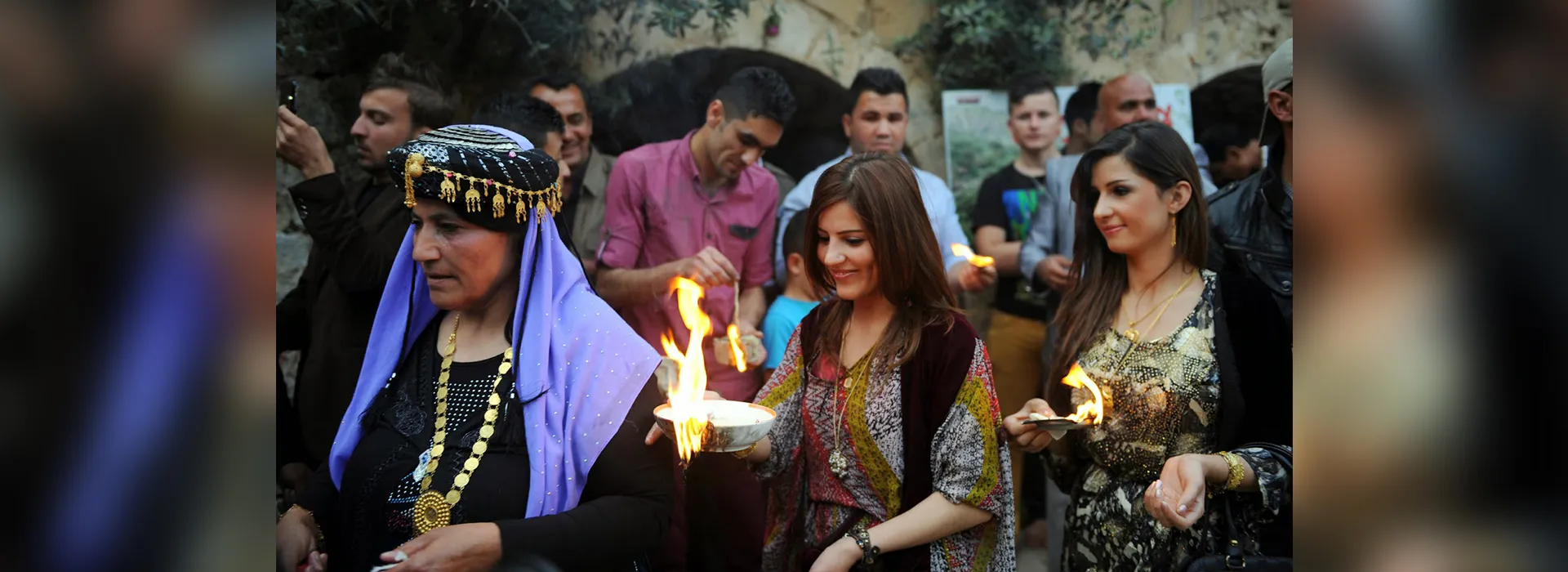Joe Gutierrez Office of Strategic Communication (909) 537-5007 joeg@csusb.edu

The post-war challenges faced by Yazidi refugee women who endured the brutality of ISIS militants after the August 2014 ISIS massacre in Sinjar, Iraq, will be the topic of a program presented by Cal State San Bernardino’s Center for Islamic and Middle Eastern Studies.
“Women After War: What We Learned From the Yazidis as an Ethnic Minority,” will be presented by Eda Erdener, a visiting scholar from Turkey, beginning at 6 p.m. on Thursday, March 1.
The talk, which is free and open to the public, will take place in the university’s College of Education, room CE-105. Parking at CSUSB is $6.
The Yazidis are a Kurdish religious minority who live primarily in northern Iraq. Beginning in the late summer of 2014, they were targeted by Islamic State (or ISIS) militants who tried to rid Iraq and Syria of non-Islamic influences in their since-failed effort to form a caliphate.
In August 2014, ISIS invaded Iraq’s Sinjar region, forcing some 400,000 to 500,000 Yazidis to flee into the mountains. Many men and boys were killed, and many women were taken captive and sold into slavery, enduring “rape, torture, and humiliation at the hand of multiple militants,” wrote Nadia Murad, a Yazidi woman in a column for The New York Times on Feb. 10.
Erdener, a professor of psychology, met with Yazidi women in the Diyarbakir Refugee Camp in Turkey between January and March 2015 as part of a humanitarian initiative to offer them psychological support. In her talk, she will share the experiences of Yazidi women from her interactions with them, bringing attention to the trauma they suffered and the way they coped with it, which is different “from mainstream Westernized trauma concepts,” a summary of her presentation reads.
“With sexual assault against Yazidi women as part of a brutal war strategy, the presentation will situate their trauma in the context of the historical and religious background of Yazidis as an ethnic minority,” the summary said.
Erdener, who was a visiting professor at Pomona College in Claremont until funding ran out, has also faced challenges of her own. In January 2016, while a faculty member at Bingöl University in Turkey, she signed what was called the Academics for Peace petition, which called for the end of the Turkish government’s crackdown on the Kurdistan Workers’ Party and a resumption of talks between the party and the government. Turkish President Recep Tayyip Erdogan publically denounced the petition and those who signed it, including Erdener.
As the only scholar at Bingöl University who signed the petition, Erdener, in an interview with The Week news website, said she was shunned by fellow faculty members — and also family members — fearful of government reprisals. She was harassed by authorities, including being followed by military police, as well as vilified on social media.
By spring 2016, as threats escalated, she decided that she could no longer teach at Bingöl University nor stay in Turkey, so she applied to the Scholars at Risk program, the first in her country to do so. With assistance from The Institute of International Education Scholar Rescue Fund® (IIE-SRF), she was able to move to the U.S. and obtain a one-year visiting scholar’s position in the anthropology department at Pomona College, for which funding has run out.
For more information and accommodations, please contact Ece Algan, director of CIMES at (909) 537-7469 or ealgan@csusb.edu.
Visit the CSUSB Center for Islamic and Middle Eastern Studies website for more information on its programs.
For more information on Cal State San Bernardino, contact the university’s Office of Strategic Communication at (909) 537-5007 and visit inside.csusb.edu.